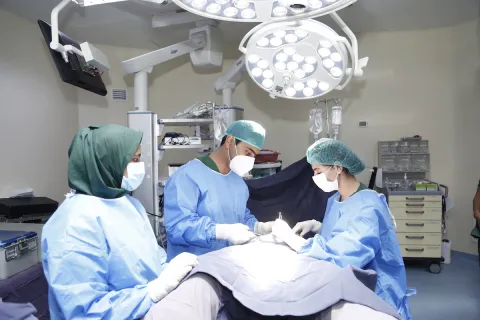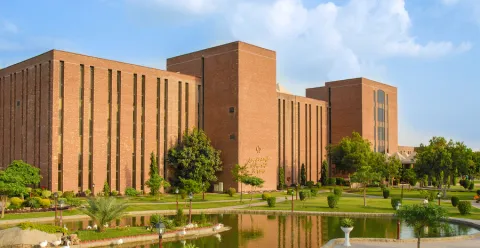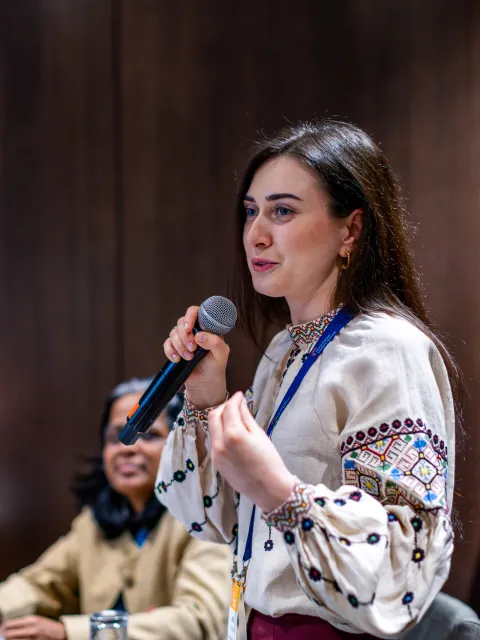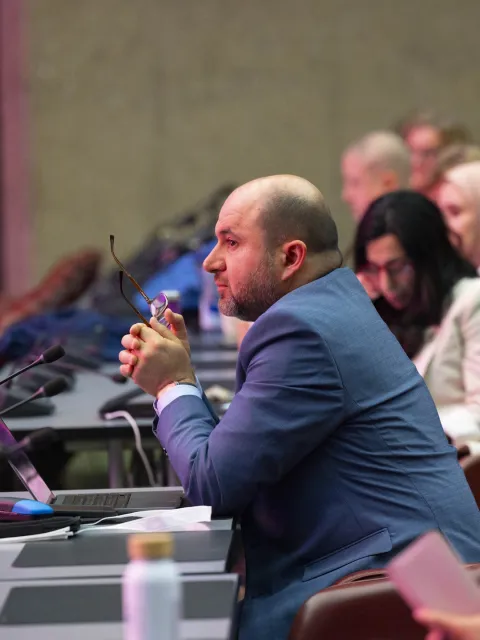Cancer care for Afghan refugees in Pakistan
Dr Sultan of SKMCH&RC talks about the situation with respect to Afghans seeking cancer care in Pakistan and the need for more qualified staff and relevant policies.


Nearly 180,000 people have fled from Afghanistan to Pakistan since January 2021, up to end May 2022, due to the US military withdrawal from the country and the takeover by the Taliban. “The challenge is not limited to this most recent migration, however,” says Dr Faisal Sultan, CEO of Shaukat Khanum Memorial Cancer Hospital and Research Centre (SKMCH&RC), a UICC member organisation. “Since 1979 with the Soviet invasion of Afghanistan, the region has lived in the shadow of conflict and crisis.”
In effect, 1.3 million registered Afghan refugees are estimated to be residing in neighbouring Pakistan, according to a UN-supported survey. (photo SKMCH&RC, Lahore)
“The flow of people with cancer from Afghanistan seeking care in Pakistan has continued through the years, regardless of the refugee situation. The real issue is that Afghanistan has weak facilities for cancer treatment and care, as decades of conflict have devasted the country’s health infrastructure. This situation impacts the ability of Afghan refugees, migrants and cross-border patients to access to care and complete treatment. SKMCH&FC has treated nearly 3,500 Afghan patients from 1995 to 2017 – over half were lost to follow-up.”
– Dr Faisal Sultan, CEO of Shaukat Khanum Memorial Cancer Hospital and Research Centre
In March 2020, Dr Sultan co-authored the study “Cancer care in times of conflict: cross border care in Pakistan of patients from Afghanistan", which looked at the typology of cancer patients seeking care in Pakistan over a 22-year period (1995 to 2017). A majority (60%) were men, over a third had upper gastrointestinal cancer – and more than half were diagnosed at an advanced stage (three or four).
The report emphasises the need for new national and international policies and practices to provide relevant models of care in situations of conflict and in the neighbouring regions that welcome refugees. These polices should account for complex migration patterns and respond to the particular physical and mental needs of populations from diverse socioeconomic and political environments.

“The number of new cancer registrations of Afghan nationals at SKMCH&RC has risen steadily since 2012, when we recorded 215 cases, to 426 in 2021, with a peak of 746 cases in 2016 – out of the approximately 12,000 we treat annually. It is a fairly important number,” Dr Sultan explains.
And the numbers are most likely much higher, since the SKMCH&RC staff do not ask for national identity papers and only register as Afghan refugees those patients with an address in Afghanistan. (photo: SKMCH&RC in Peshawar)
Pakistan has a mixed health system, with services, including cancer care, provided by public sector hospitals, private institutions and the non-profit sector. There are up to 200,000 cases of cancer recorded every year in Pakistan, according to Dr Sultan, and about 50,000 contact SKMCH&FC for care; the institution can only treat approximately 12,000 people.
While 22% of patients pay fully out of pocket, most are treated for free thanks to donations fundraised by SKMCH&FC. This includes people with cancer from Afghanistan seeking care in Pakistan, who also benefit from free care if they are unable to pay out of pocket.
“Our centre is one where you see people from the entire social spectrum. Our staff does not know a person’s particular life situation. We cannot take everyone, however, without compromising quality. But the challenge is not so much money as staff and expertise.”
– Dr Faisal Sultan, CEO of Shaukat Khanum Memorial Cancer Hospital and Research Centre
Last update
Thursday 01 December 2022
